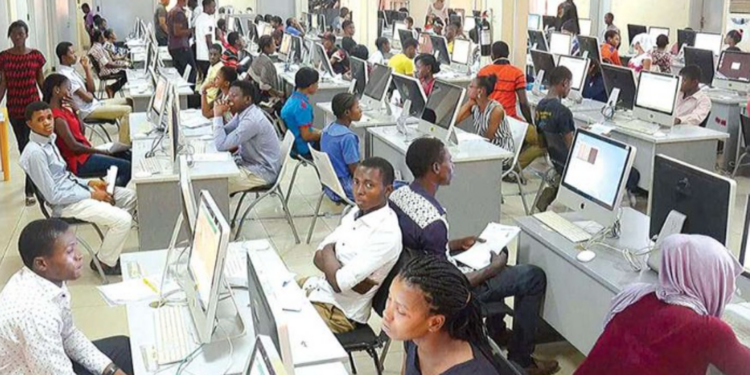
By David Akinmola
The Joint Admissions and Matriculation Board (JAMB) has revealed alarming levels of examination malpractice in the 2025 Unified Tertiary Matriculation Examination (UTME), uncovering 4,251 cases of fingerprint fraud and 192 instances of impersonation aided by artificial intelligence (AI).
The findings were disclosed by a special investigative panel set up by JAMB to review irregularities recorded during the 2025 UTME. According to the panel, the fraud ranged from candidates hiring surrogates to sit examinations on their behalf, to more sophisticated schemes leveraging emerging technologies to evade biometric verification.
Fingerprint fraud remained the most prevalent malpractice, with thousands of candidates attempting to bypass JAMB’s biometric identification process by substituting fingerprints at registration or examination centres. Even more worrying, the panel noted, was the detection of AI-powered impersonation, a relatively new trend that poses fresh challenges for exam integrity.
JAMB said the discoveries underscore the lengths to which some candidates and their accomplices are willing to go in order to manipulate the system, despite heavy investment in technology to safeguard the credibility of the UTME.
“The rise of AI-driven impersonation marks a dangerous new frontier in examination malpractice,” a senior JAMB official noted, adding that the board is already working with security agencies and tech experts to strengthen detection systems and prosecute offenders.
The board assured stakeholders that all identified cases are being thoroughly investigated, with guilty candidates facing the risk of result cancellation, prosecution, and multi-year bans from sitting future UTME examinations.
Education stakeholders say the revelations highlight both the resilience of JAMB’s detection mechanisms and the need for continued vigilance as fraudsters adopt new technologies to subvert examination processes.
JAMB has promised to release further details on its next steps, including possible adjustments to its biometric and AI monitoring systems ahead of the 2026 UTME cycle.








